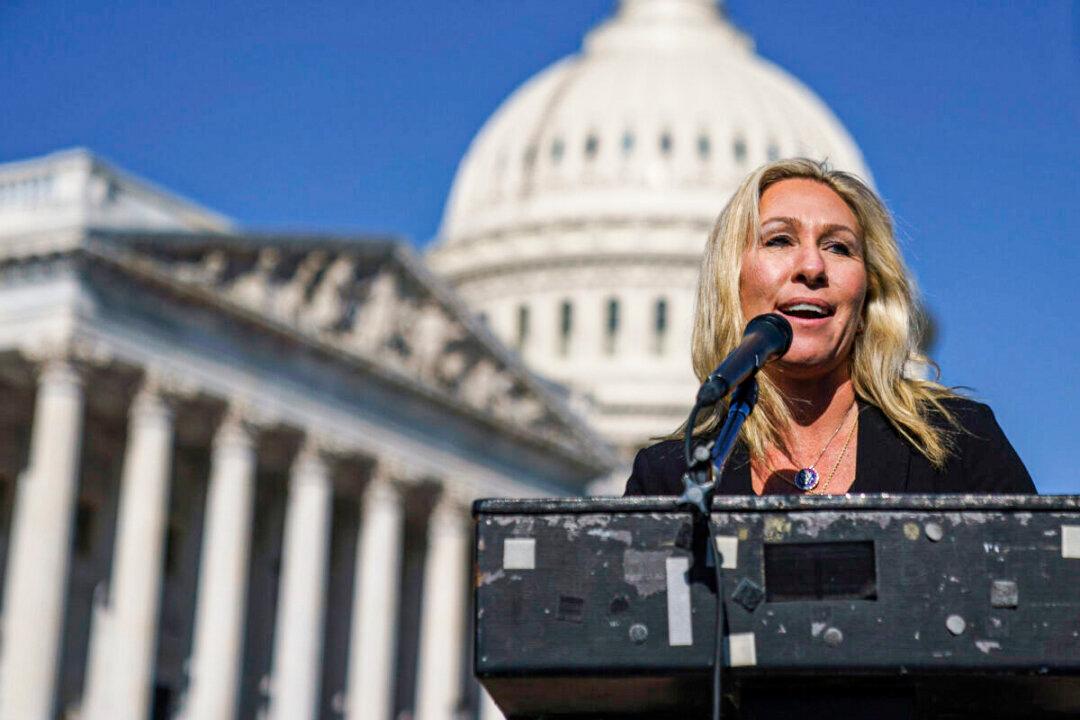A left-wing group’s challenge to Rep. Marjorie Taylor Greene’s (R-Ga.) candidacy in this year’s elections based on claims she violated the Constitution’s Disqualification Clause by engaging in a supposed insurrection against the U.S. government may be allowed to move forward, a federal judge indicated.
This insurrection supposedly culminated in the Jan. 6, 2021 security breach at the U.S. Capitol in which supporters of then-President Donald Trump delayed the congressional certification of the 2020 presidential election results for several hours. Democrats and some Republicans characterize the disturbance, from which some elected officials took cover, as an insurrection or coup attempt aimed at overthrowing the U.S. government, a claim that has been adamantly denied by Trump and his supporters.





